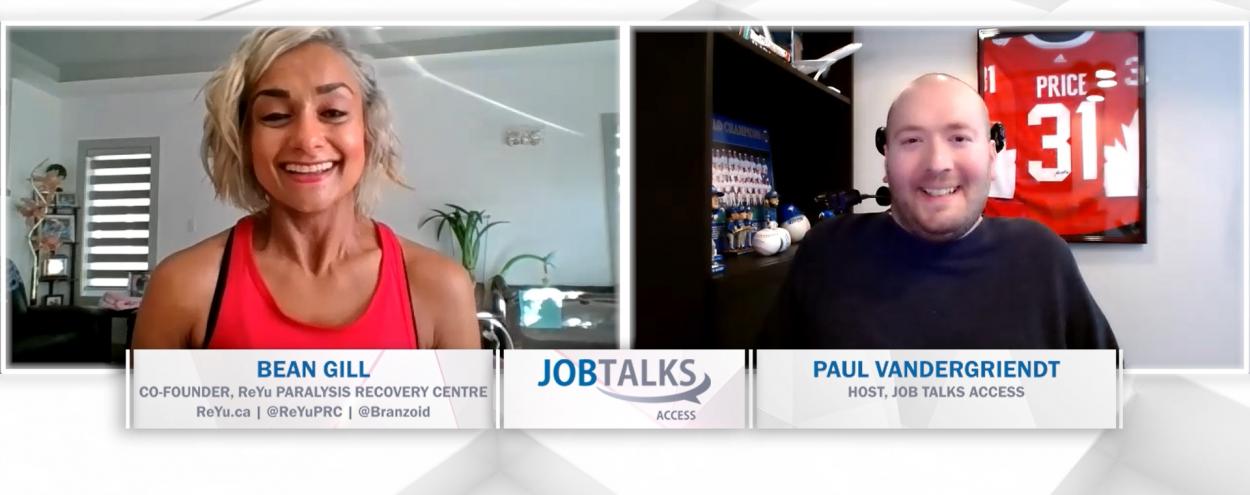
As a professor in the School of Marketing at George Brown College, Dr. Jon Callegher knows how rewarding a career in the skilled trades can be. “But if you’re not watching channels like HGTV, you’re not going to see skilled trade workers much in the media,” says Callegher. “And usually not young ones.”
So in 2015, Callegher launched the JobTalks.org project to change the way we talk about the trades, for the better. Funded by NSERC, the project focused on young skilled trade workers across Canada, showcasing what they liked about their job, and why they were passionate about it—beyond a salary.
“When you have a job that you love, you’re not only a better co-worker, but also a better partner, parent, friend, neighbour, and citizen,” he says. “So it’s important that people are able to discover jobs that are right for them.”
Launching a survey of workers with disabilities
The latest phase of this project, Job Talks Access, focuses on two national surveys to support the development of employment support programs and toolkits for persons with disabilities. Partnering with the Canadian National Institute for the Blind (CNIB) Foundation, Q.I. Value Systems and The Career Foundation, these resources also hope to empower companies who want to hire persons with disabilities but are less equipped to do so.
“The longer we work, and the more people work into their 60s and early 70s, the more things like pain, dexterity, vision impairment and other disabilities will affect all of us,” says Callegher. “The more we can learn from those who are currently managing disabilities, the more we can make better predictions about how to ensure everyone is happy in their professions.”
Bringing an accessibility perspective to all jobs
Another key part of this research is a video interview series, hosted by Sport & Event Marketing post-graduate student Paul VanderGriendt. Recruited initially to help with the research, VanderGriendt quickly moved into a spokesperson role, leading Zoom interviews with workers in a variety of industries and positions.
“Often the most prominent people with disabilities have jobs related to their disabilities—they’re public speakers or advocates. But bringing an accessibility perspective to all kinds of jobs is also important,” VanderGriendt says. “We’re trying to cast a wide net with our interview subjects, so we’ve featured a whole range of jobs—from directors to analysts to entrepreneurs. We want to see how they navigate their work.”
The shift to remote work during the pandemic seems to have opened up doors for workers with disabilities, the team says.
“Working from home is a huge positive in terms of flexibility, not having to use transit, and accessing more employment opportunities. But I’ve also heard it takes away that social interaction component and connection for some,” says VanderGriendt. “Overall, we’re going in the right direction. Everyone is pro-accessibility, everyone wants to move forward and adapt. But every person is a unique individual, and they have their own story and preferences.”
Changing the public perception
“Many of our interview respondents are coming from bigger companies and from public and non-profit sectors who have put accessibility practices in place,” says Callegher. “It’s our hope that more employers in the private sector will realize it’s not an insurmountable effort when they hear Paul’s interviews.”
At the end of the day, the project aims to change the public perception of what accessibility is, what it needs to be, and ultimately promote open-mindedness in hiring persons with disabilities.
“A big part of this series is awareness,” says Callegher. “As one of our guests pointed out, most people don’t think about being disabled until it happens to them. Through Paul’s interviews, we’re sharing stories and lessons around employment that will encourage all of us to be better citizens and co-workers.”
This article is part of a series highlighting research led by faculty at George Brown. Stay tuned for more news highlighting research and innovation at the college.
